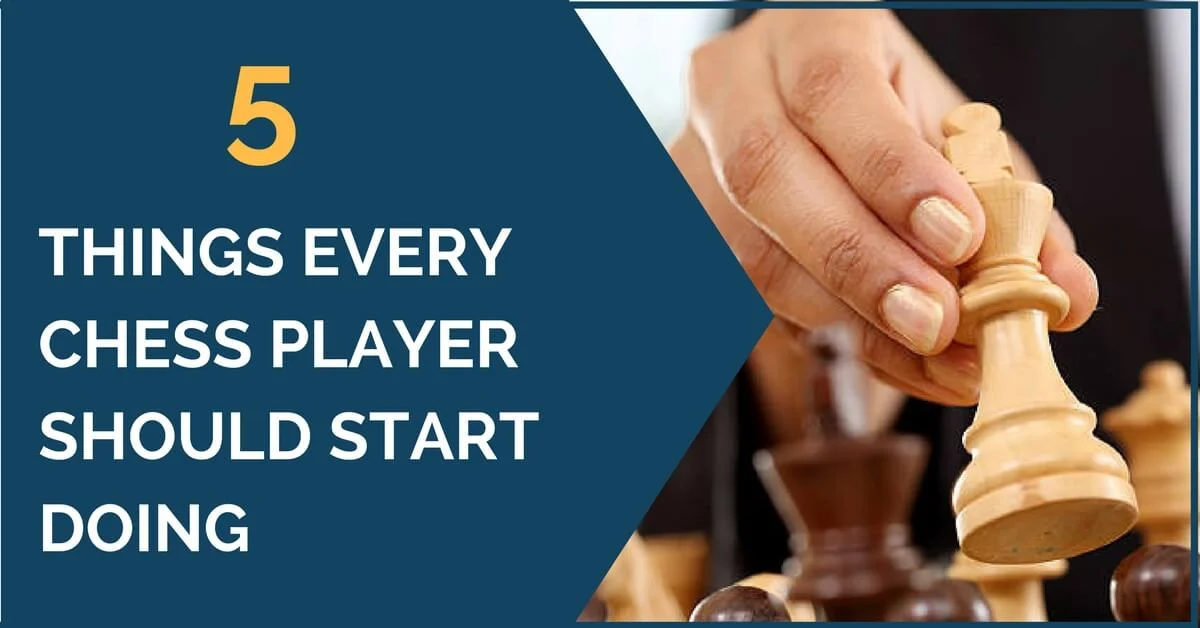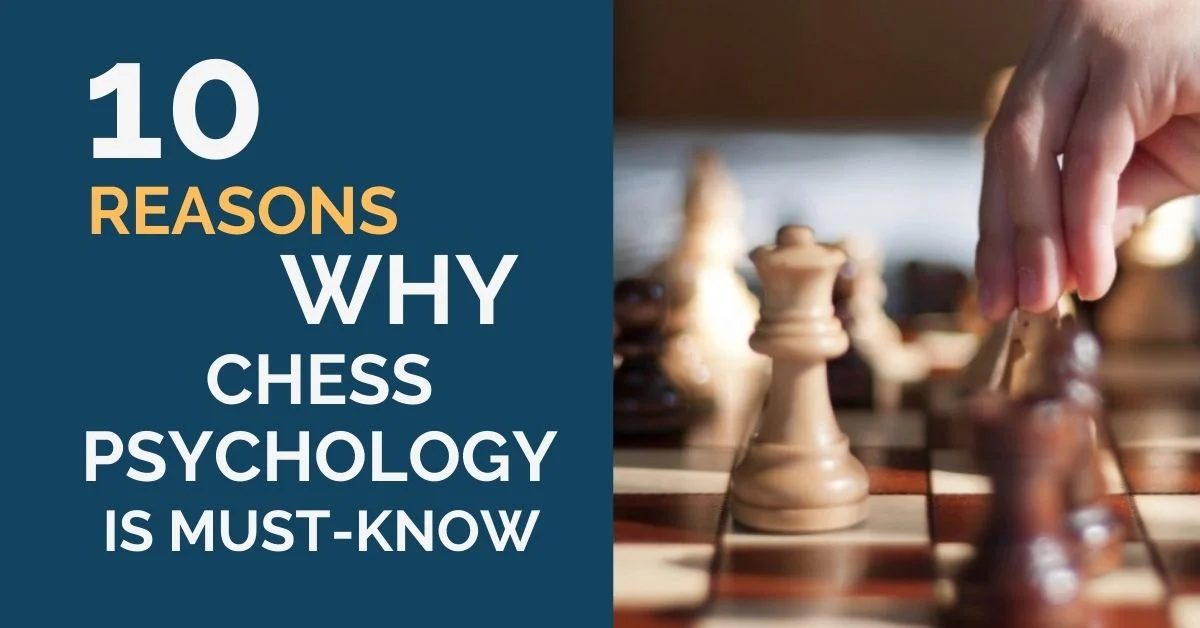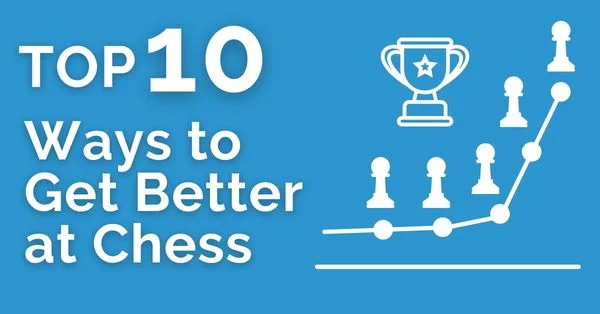5 Things Every Chess Player Should Start Doing

Over 99% of chess players play way under their maximum performance rating. Wouldn’t it be great if you could simply flip a switch and your chess performance goes up? Unfortunately, it doesn’t work like that, otherwise, everyone would’ve been a Grandmaster already. Don’t get upset though, because there are some things that I cover that act exactly as that magic switch. You won’t become a grandmaster or even a master overnight, but if you implement even some of the advice given here you will notice you start making progress [especially if you are stuck and not improving].
1. Do what chess pros do
Everyone admires Grandmasters and wants to play just like them until it comes to doing what GMs do: working their butt off! Most players never try. Most players never do. Some try it once or twice and quit quickly.
If you are truly passionate about the game it doesn’t matter whether you are 1000 or 2200 rated, 10 or 70 years old. If you give it your absolute best, dedicate time, wake up early and train systematically there is no way you can fail!
2. Don’t doubt yourself
I’m getting a lot of questions such as “I’m 71 years old – and can never improve, what should I do?”, “I don’t have access to chess resources, that’s why I can’t improve, what should I do?” or “I don’t have time to work on chess, how can I improve?” Like I wrote previously, it doesn’t matter what’s your age, Elo, IQ or whatever else ‘number-excuses’ you have to justify why you don’t improve.
The real reason that happens because you are not putting enough into it or you’re not doing the right thing in your training (or possibly both). When it comes to not having enough time, keep in mind that everyone has 24 hours in a day. If you truly want to get better at chess I’m certain that you will be able to find 1-2 hours per day, few times per week. If you can’t it means you should do some work on time management. Possibly writing down how exactly you spend your time and organizing things better.
If you don’t have money or resources to improve your game, let me assure you that you can work on your game and get better pretty much anywhere on any budget. Perhaps, some of your old habits should go, maybe you’ll need to make some changes, or step out of your comfort zone. Changes are hard, but if you truly want it, you will find a way [and we are here to help you]. Positive attitude always helps you at achieving more and much faster.
3. Don’t doubt the training
Many club players are very skeptical about any sort of chess training. Even if the training or a book has a proven record of success, many would think “so what, it helped the other guys but I know it won’t help me!” It is not a good idea to train with this kind of attitude because you’re are pretty much setting yourself for a failure.
It’s a much better approach to trust the training, follow guidelines and recommendations by keeping your mind open. That way you’re very likely to get surprised with how effective the training actually was – because the thoughts are material!
Do you know why kids learn things much faster than adults? Part of the reason is they don’t doubt themselves and do dream big. If you are curious, read 10 Reasons Why Adult Players Fail to Improve at Chess.
4. Don’t worry about the result
One of the biggest problems that many players are struggling from is stressing out about the results. Of course, everyone loves winning. And I’m not saying that you should be completely negligent about the outcome of your games. If you want to perform at your best you should focus on the board and not what going to happen if you lose, win, draw, etc.
Chess is already a very demanding game. By focusing on other things such as rating change, tournament standings, negative consequences of the loss you’re taking part of your attention away from the board. You don’t want to give your opponent something for nothing. Avoid doing that by simply not allowing negative thoughts to enter your mind and you’ll already have a substantial edge.
5. Take each loss as a lesson
Do you know why chess masters are much stronger than chess amateurs? You’re probably thinking because they have more experience, better at tactics, higher level positional understanding, superior endgame skills, and the list goes on and on. Let’s just focus on experience part for a second. That’s something decisive and there are no shortcuts here.
What is experience anyway?
Experience is аn ability to judge position on the board based on whatever happened to you previously. Masters generally have years of competitive play under their belts. They won many games and lost even more. Losses аrе where the majority of progress comes from. That’s right, it comes from the losses, not from the wins.
Winning simply means you are not being challenged enough. A loss means there is something particular you can work on to improve your game. That’s very precious for weak and strong players alike. If you learn from each defeat and take it as a learning experience rather than failure you will be able to become a much stronger player in no time. That’s why it is super important to analyze your losses and identify the cause.
Do you know why some players stay low rated for decades? They don’t identify the root of the problem and keep making the same mistakes for years. I’m sure you don’t want that and that’s why you do [or will start] identify your weaknesses.










Comments: